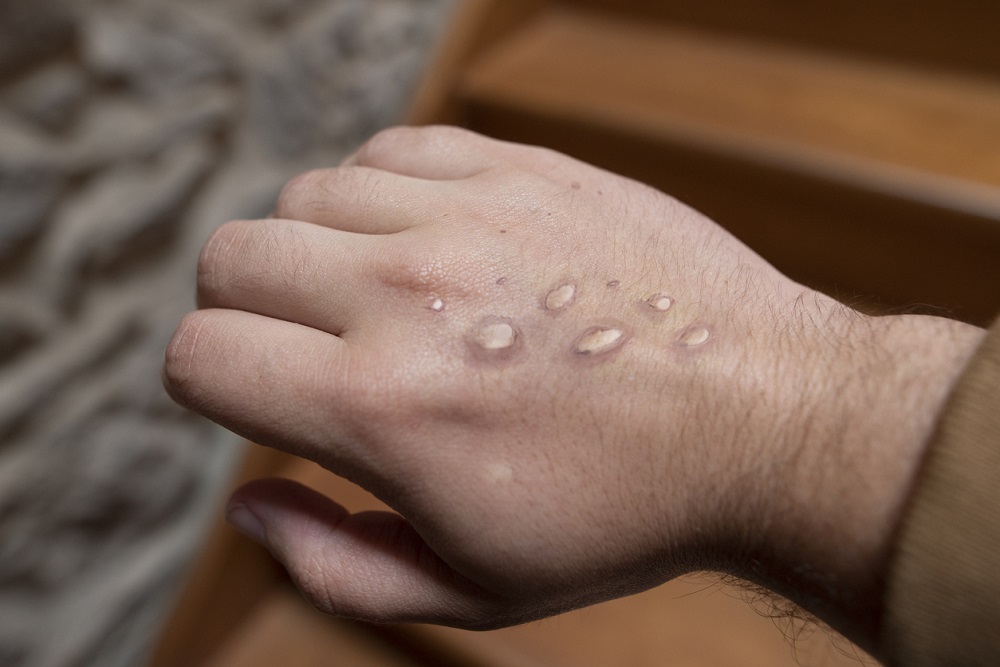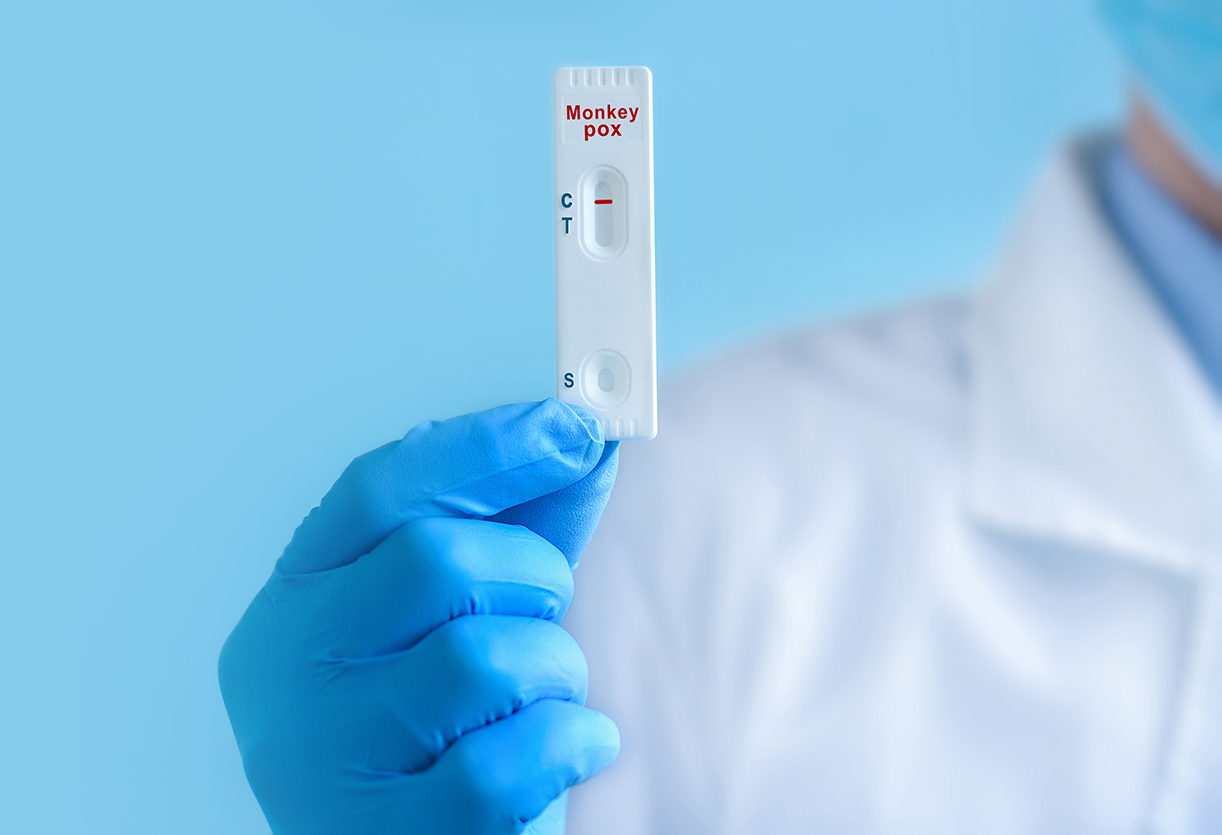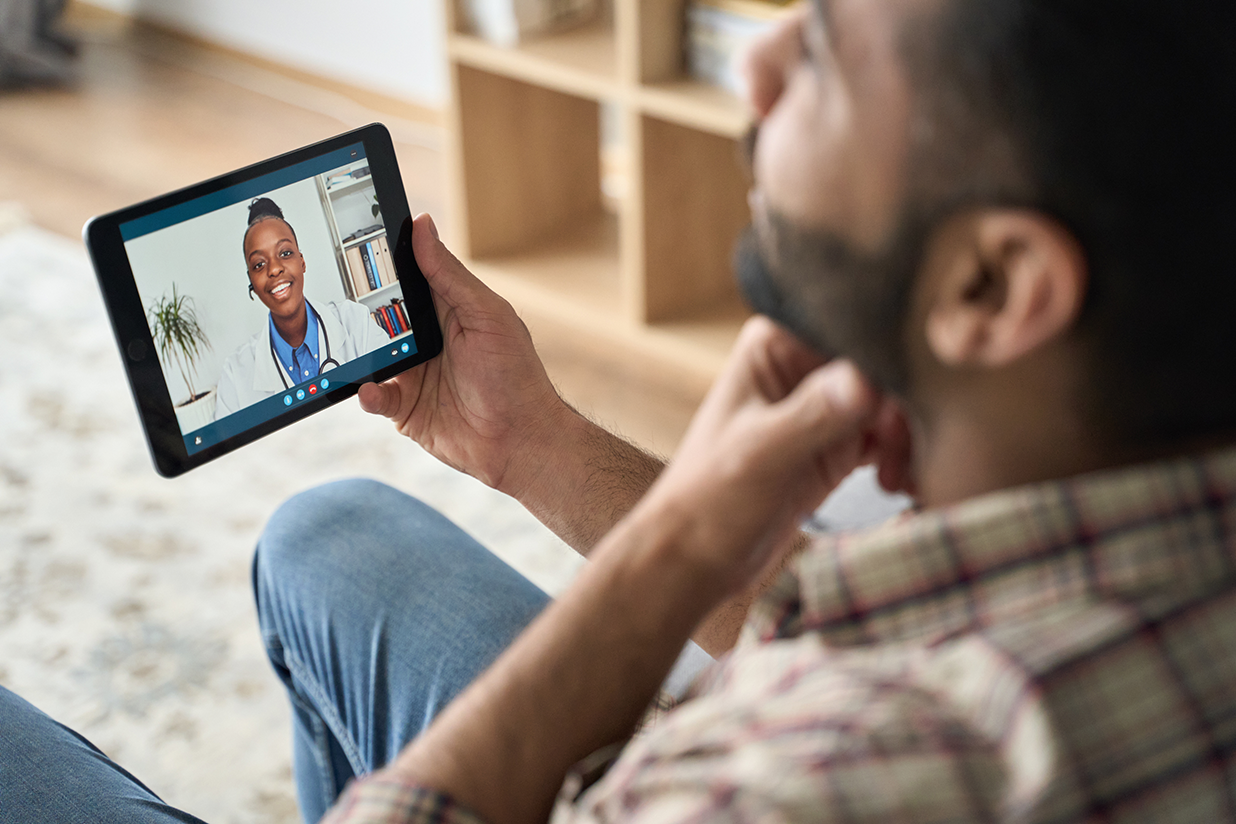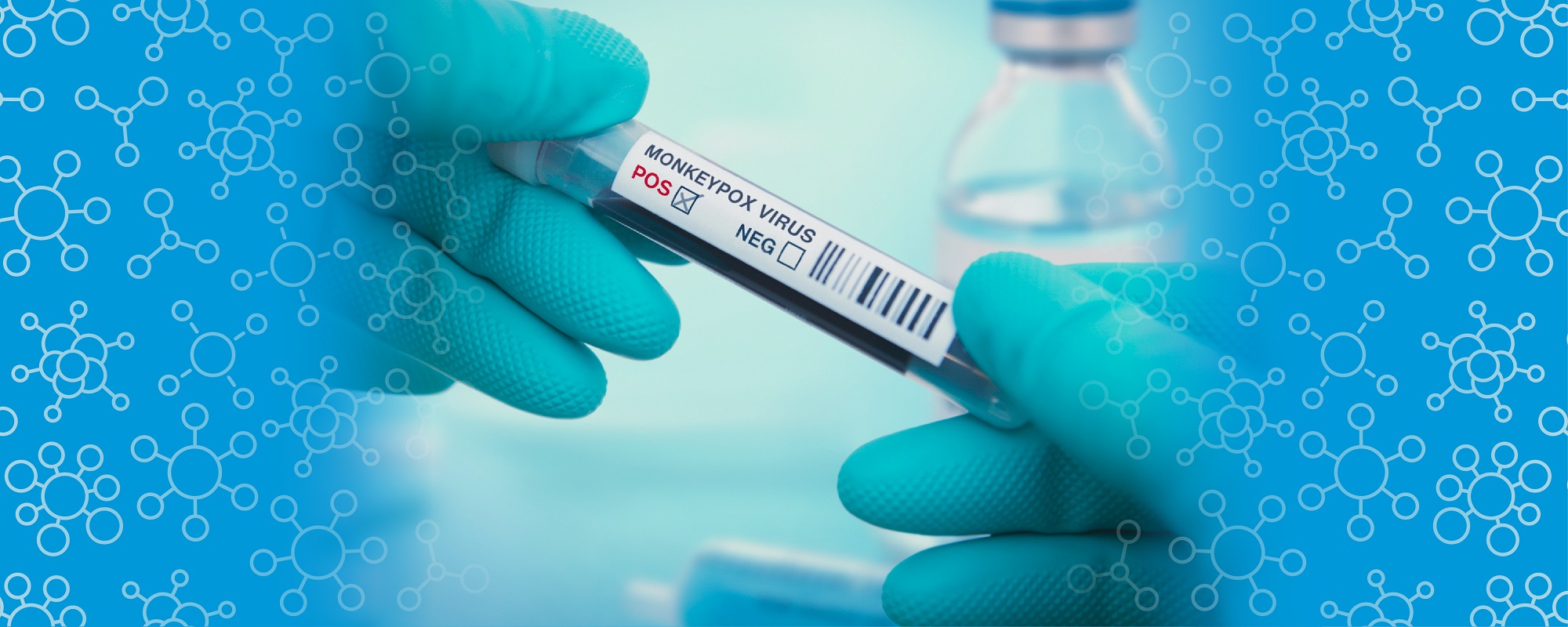Monkeypox is a viral disease that spreads through close, direct contact with an infected individual. Understanding this condition can help you take the proper precautions and know how to proceed if you think you were exposed to this virus.
What is Monkeypox?

Monkeypox is an illness caused by the monkeypox virus. The first human case of monkeypox occurred in 1970 and has since been found primarily in areas of central and west Africa near tropical rainforests.
In addition to transmission from animals to humans, the monkeypox virus can be passed from one person to another through close contact with an infected person’s bodily fluids, lesions or respiratory droplets. It can also spread through direct contact with contaminated materials, such as towels, clothing, bedding or household surfaces.
Although monkeypox symptoms are similar to smallpox symptoms, it is not as contagious and causes less severe illness. Monkeypox symptoms typically last 2 to 4 weeks and resolve on their own. Symptoms may include a rash, fever, fatigue or swollen lymph nodes. While these symptoms can lead to medical complications in some instances, severe cases and fatalities are exceedingly rare.
What are Monkeypox's Symptoms?
The incubation period for monkeypox, which is the duration from exposure to symptom onset, is typically 5 to 14 days, but can last up to 21 days. Your initial symptoms may include:
- Fever
- Headache
- Muscle aches and backache
- Chills
- Extreme fatigue
- Swollen lymph nodes
A rash usually appears within 1 to 3 days of your initial symptom onset, often affecting the face, hands, feet, mouth and genitalia. The skin rash progresses through five phases, during which time lesions form, raise, fill with fluid and eventually scab and fall off. Public health experts recommend isolating until the entire rash is gone and a fresh layer of skin has formed, usually within 2 to 4 weeks.
How is Monkeypox Diagnosed?

To diagnose monkeypox, your provider will ask for your entire medical and sexual history to help determine exposure and rule out any other possible medical issues. Your provider will examine your rash or any lesions to determine if it could be monkeypox. If suspected, your provider will conduct or arrange for a polymerase chain reaction (PCR) test by swabbing your rash or lesion. From here, your provider will make medical recommendations for treatment and inform you of steps you can take to minimize the risk of transmitting monkeypox to others.
What treatments are available for Monkeypox?
Most people with Monkeypox can recover at home without specialized treatment. However, for those that may or do need specialized treatment, the following treatments are available:
Antiviral Drug TPOXX (tecovirimat)
The antiviral drug TPOXX (tecovirimat) may help treat severe or complicated Monkeypox cases. If you are pregnant, immunocompromised, have a history of chronic skin conditions or if your Monkeypox rash is extremely painful, talk to your provider about whether TPOXX is an option for you. Currently, healthcare providers can request this medication from the CDC for qualified patients through an Expanded Access Investigational New Drug protocol.
Vaccine
A monkeypox vaccine is also available, but current supplies are limited. If you have known contact with someone who tested positive for monkeypox, talk to your provider about scheduling a vaccine appointment at one of the nine locations throughout the state.
Inspira's Approach to Monkeypox Treatment

If you think you may have been exposed to or contracted Monkeypox, cover your rash, isolate yourself, and call your health care provider immediately. Scheduling a telemedicine appointment is an ideal option for initial assessment because it minimizes the risk of transmitting Monkeypox to others. However, confirming diagnosis through a PCR test requires an in-person visit.
Before arriving at your in-person visit, call the office to make them aware that you are experiencing possible Monkeypox symptoms. When you arrive at your appointment, ensure your rash is completely covered with long sleeves, pants or bandages, and wear a mask. Your provider will ask you for your medical and sexual history and conduct or arrange for a PCR test if Monkeypox is suspected. They will also give you instructions for self-isolation to avoid spreading the virus to others.
Inspira Urgent Care centers and Emergency Departments are available for PCR testing to confirm your diagnosis and answer your questions about a treatment plan. Call to confirm availability of testing.
